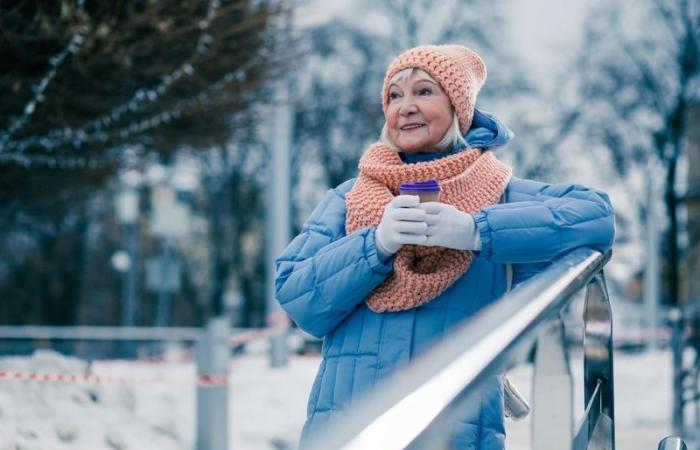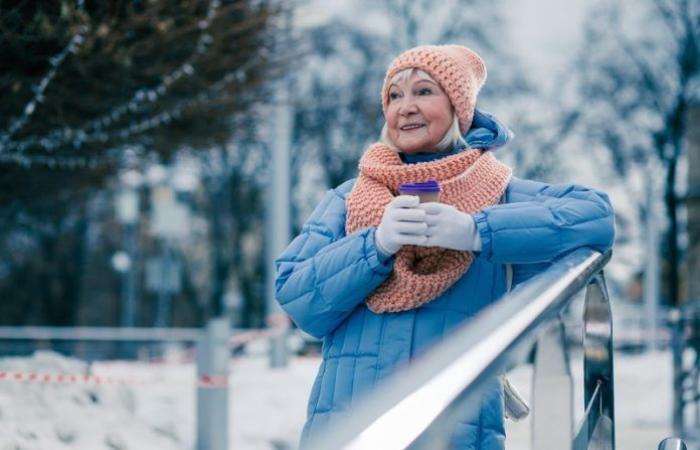Between the lack of light and low temperatures, winter can disrupt our natural rhythms. The days are getting shorter, and this directly impacts the production of serotonin, the happiness hormone. Consequence: fatigue, sleep problems, irritability…
On the health side, the figures speak for themselves: each year, according to the Pasteur Institute, between 2 and 6 million French people catch the flu. However, with a few simple actions, it is possible to transform this season into a period full of sweetness and vitality.
Practicing yoga: de-stressing and strengthening the body
Yoga is an ideal practice for releasing accumulated physical and mental tensions, especially during the holidays. According to a study conducted by Inserm, yoga can reduce the level of cortisol, the stress hormone, by 40% after a few weeks of regular practice.
In winter, favor gentle and accessible postures such as child or downward facing dog. These movements stimulate blood circulation, strengthen muscles, and help better manage cold-related pain.
Even if you're just starting out, 15 minutes a day is enough to feel the benefits. Try a session when you wake up to energize yourself or before bed to calm your mind.
Meditation to find your inner calm
Do you feel that the holidays or the daily rush are stressing you out? Take a few minutes to meditate. Meditation is particularly beneficial in winter to counteract low morale. A Harvard Medical School study showed that 20 minutes of daily meditation reduced symptoms of mild to moderate depression by 33%.
This practice does not require any equipment: you just need to sit comfortably and concentrate on your breathing. You can also use applications like Petit Bambou or Headspace to guide you.
In addition to improving your mood, meditation also boosts the quality of your sleep, an essential asset for strengthening your immune system.
Clear your mind with winter walks
Even if the cold discourages you, going out for a walk remains one of the simplest and most beneficial activities. A daily 30-minute walk helps stimulate vitamin D production through exposure to natural light, even on cloudy days.
According to Santé Publique France, 80% of French people have a vitamin D deficiency in winter, which can lead to fatigue, infections and low morale. Walking regularly also improves blood circulation and reduces the risk of cardiovascular disease.
Put on a warm coat, a cozy scarf and go explore a park, a forest or your neighborhood. It’s also a great opportunity to disconnect from screens.
Hot baths: much more than a moment of relaxation
In winter, what's better than a hot bath to warm up and relax? But it's not just a question of comfort: hot baths have real benefits for the body. According to a study published in the Journal of Applied Physiology, a bath at 37-38°C improves blood circulation by 15% and reduces blood pressure.
For an even more soothing effect, add a few drops of essential oils. Lavender is ideal for calming the mind, while eucalyptus helps relieve congestion in cases of colds. For inflammatory pain, do not hesitate to include bath salts.
As a bonus, bathing is an effective solution to relieve joint pain often worsened by the cold.
Strengthen your immune defenses with a suitable diet
What you put on your plate has a direct impact on your health in winter. Prioritize foods rich in vitamin C such as citrus fruits (kiwis, oranges, lemons): a single kiwi covers 100% of your daily needs, according to ANSES.
The probiotics present in yogurts, kefir and even sauerkraut also play a key role. They strengthen your intestinal microbiota, one of the first lines of defense against infections.
Finally, bet on homemade soups: easy to prepare, they allow you to consume a large quantity of seasonal vegetables (carrots, squash, leeks) while warming up.
Light therapy: a light at the end of the tunnel
When the lack of natural light is weighing on your mood, light therapy can work miracles. This technique consists of exposing yourself to intense white light, which reproduces the benefits of the sun.
70% of people suffering from seasonal depression see improvement after two weeks of light therapy. These lamps, available in pharmacies or online, are easy to use: you just need to sit in front of them for 20 to 30 minutes a day, ideally in the morning. A perfect routine to start the day off right.
Slow down and enjoy “slow life”
Winter is a perfect season to practice “slow life”, a calmer way of life focused on the essentials. Take time to cook, read a good book or do a craft activity like knitting or drawing.
Slowing down reduces chronic stress and allows you to better enjoy small pleasures. According to a Public Health France survey, 64% of French people say they lack time for themselves. Winter is an opportunity to regain control over your schedule.
Cultivate social connections
Isolation, especially in winter, can make the holiday blues worse. Organize time with your loved ones: a coffee, a game night or even a video call if distance separates you. According to the National Institute of Health, maintaining regular social interactions reduces the risk of depression by 50%.
Laughter and discussion also stimulate the release of endorphins, hormones that provide an immediate feeling of well-being.
Give more importance to sleep
Getting enough sleep is essential in winter. Lack of sleep weakens the immune system and makes you more vulnerable to viruses. According to Santé Publique France, an adult needs 7 to 9 hours of sleep per night to recover properly.
Create a calming routine before bed: dim the lights, avoid screens and opt for a relaxing herbal tea. These simple actions promote rapid falling asleep and restful sleep.
NAMELY
Seasonal Affective Disorder (SAD) is winter depression caused by lack of light. Less sun means less serotonin for morale and more melatonin, which makes us tired. Vitamin D deficiency doesn't help!









